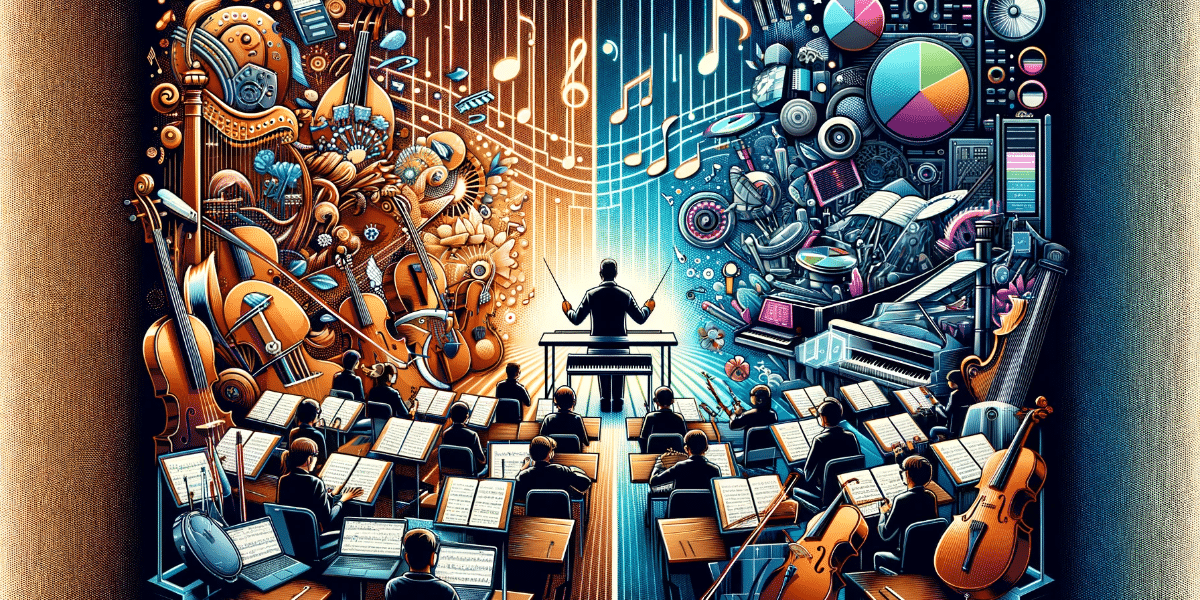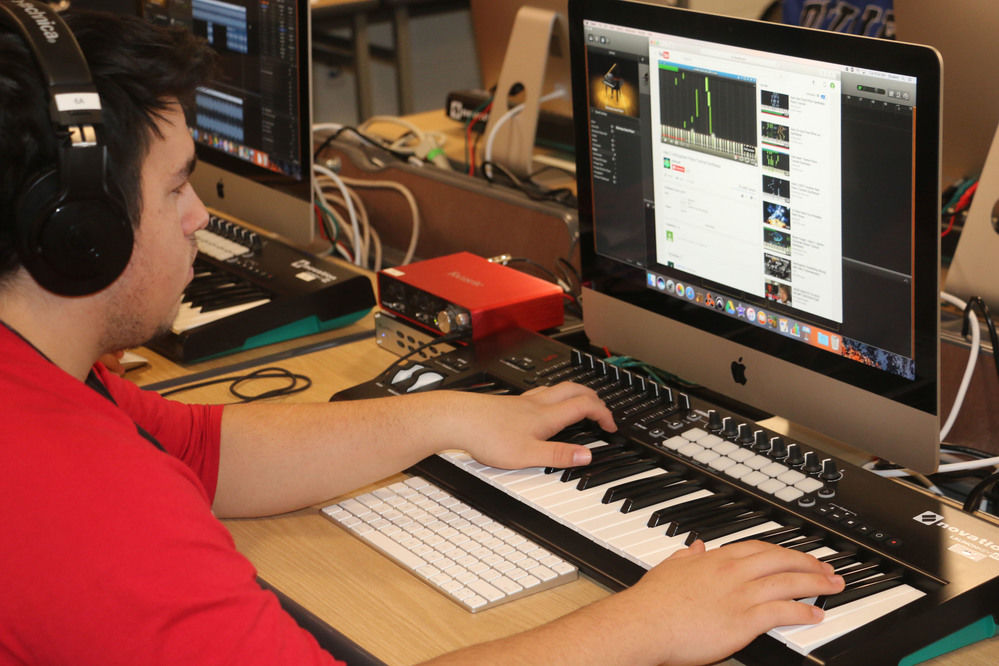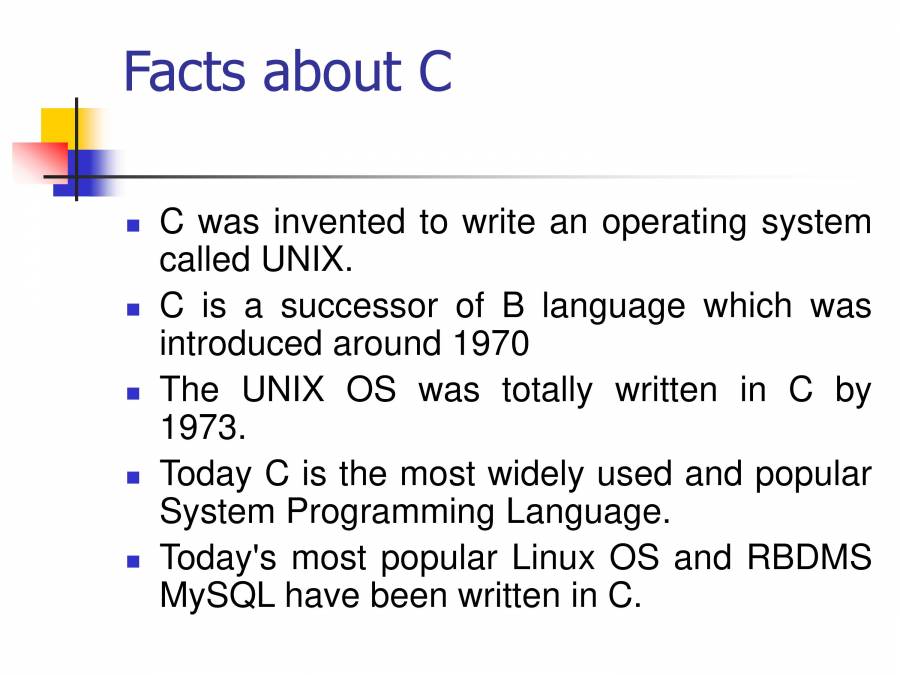Music Technology Courses: Mastering the Soundscape
Music technology courses are your gateway to understanding and manipulating the world of sound. They delve into the history, techniques, and tools that shape the music we hear and create, […]
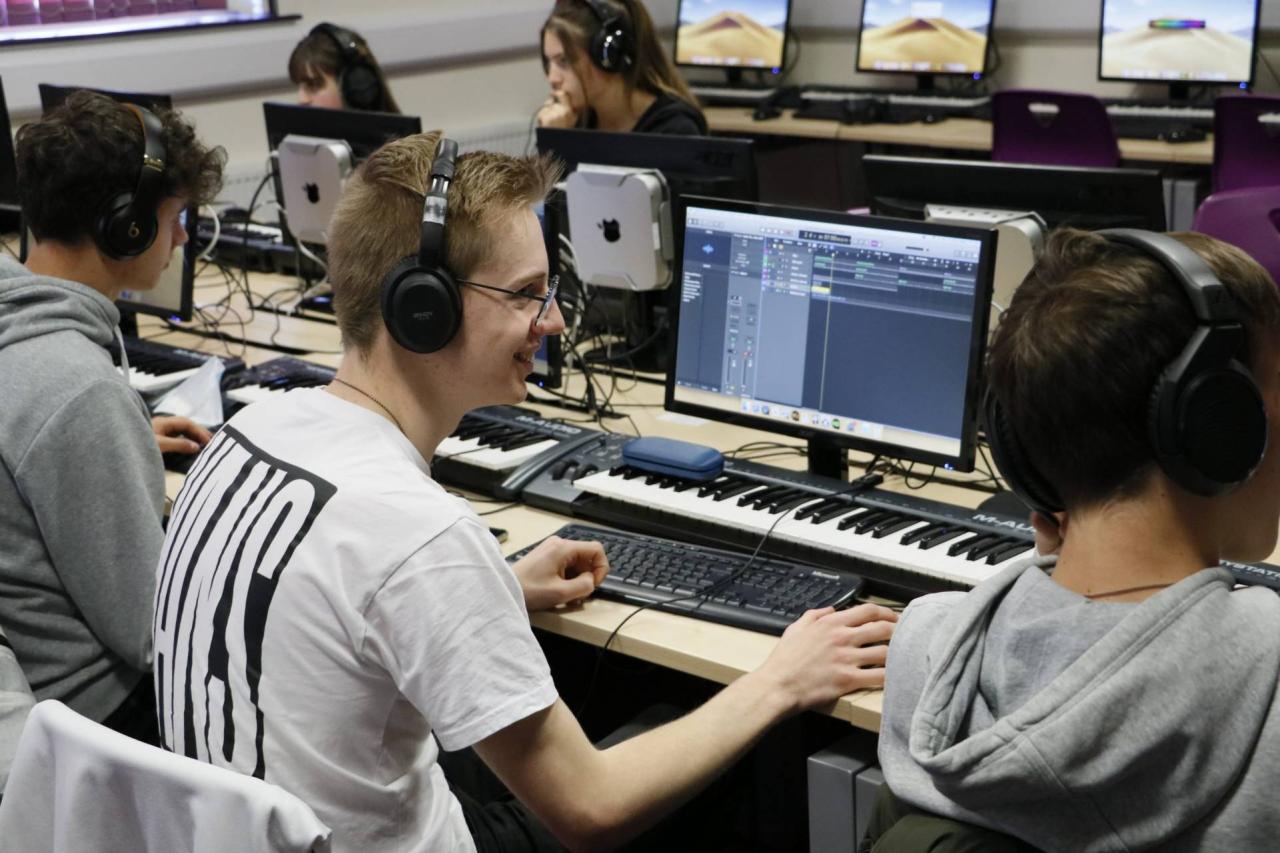
Music technology courses are your gateway to understanding and manipulating the world of sound. They delve into the history, techniques, and tools that shape the music we hear and create, from the classic analog era to the digital revolution that continues to redefine the industry.
These courses offer a comprehensive exploration of music production, recording, sound design, and live sound, equipping you with the skills to navigate the complexities of modern music creation and performance. You’ll learn to utilize software like Digital Audio Workstations (DAWs), manipulate audio effects, synthesize unique sounds, and even understand the intricacies of live sound reinforcement systems. Whether you’re a budding musician, aspiring producer, or simply curious about the technology behind your favorite tracks, these courses provide a valuable foundation for your journey into the world of music technology.
Career Paths in Music Technology

Music technology has revolutionized the way music is created, produced, and consumed. This dynamic field offers a variety of career paths for individuals with a passion for music and technology. From creating innovative sounds to developing cutting-edge software, music technology professionals play a crucial role in shaping the musical landscape.
Music Producer
Music producers are responsible for overseeing all aspects of the music production process, from song conception to final mastering. They collaborate with artists, musicians, and engineers to create a cohesive and compelling musical product.
Skills and Qualifications
- Strong musical ear and understanding of music theory
- Proficiency in music production software (e.g., Pro Tools, Ableton Live)
- Knowledge of audio engineering principles
- Excellent communication and collaboration skills
- Creativity and innovation
Examples of Successful Music Producers
- Dr. Dre: Known for his work with artists like Snoop Dogg, Eminem, and 2Pac, Dr. Dre has produced some of the most iconic hip-hop albums of all time.
- Rick Rubin: A legendary producer who has worked with a wide range of artists, including Johnny Cash, Red Hot Chili Peppers, and Adele, Rubin is known for his ability to bring out the best in his collaborators.
Sound Engineer
Sound engineers are responsible for capturing, manipulating, and mixing audio signals to create a desired sound. They work in recording studios, live performance venues, and post-production facilities.
Skills and Qualifications
- Deep understanding of acoustics and audio engineering principles
- Proficiency in audio recording and mixing software (e.g., Pro Tools, Logic Pro)
- Knowledge of microphones, speakers, and other audio equipment
- Attention to detail and a keen ear for sound
- Problem-solving skills
Examples of Successful Sound Engineers
- Andy Wallace: Known for his work on iconic albums like Nirvana’s “Nevermind” and Rage Against the Machine’s “Evil Empire,” Wallace is considered one of the most respected sound engineers in the industry.
- Bob Clearmountain: A legendary engineer who has worked with artists like Bruce Springsteen, David Bowie, and The Rolling Stones, Clearmountain is known for his signature sound and ability to capture the essence of a performance.
Music Software Developer, Music technology courses
Music software developers create and maintain the software tools used by musicians, producers, and engineers. They are responsible for designing, coding, and testing software applications.
Skills and Qualifications
- Strong programming skills (e.g., C++, Java, Python)
- Understanding of music theory and audio processing
- Experience with software development methodologies
- Creativity and problem-solving skills
Examples of Successful Music Software Developers
- Steinberg: A leading developer of music software, Steinberg is known for its flagship DAW, Cubase, and other popular products like Halion and Groove Agent.
- Ableton: Ableton is a company known for its innovative music production software, Ableton Live, which is widely used by electronic music producers and DJs.
Music Educator
Music educators teach music theory, performance, and technology to students of all ages. They may work in schools, universities, or private studios.
Skills and Qualifications
- Strong musical background and teaching experience
- Knowledge of music theory, history, and pedagogy
- Proficiency in music software and technology
- Excellent communication and interpersonal skills
- Passion for music and education
Examples of Successful Music Educators
- David Baker: A renowned composer and educator, Baker has taught at the University of Miami for over 40 years and has mentored countless musicians.
- Berklee College of Music: A world-renowned institution for music education, Berklee offers a wide range of programs in music performance, production, and technology.
Conclusive Thoughts: Music Technology Courses
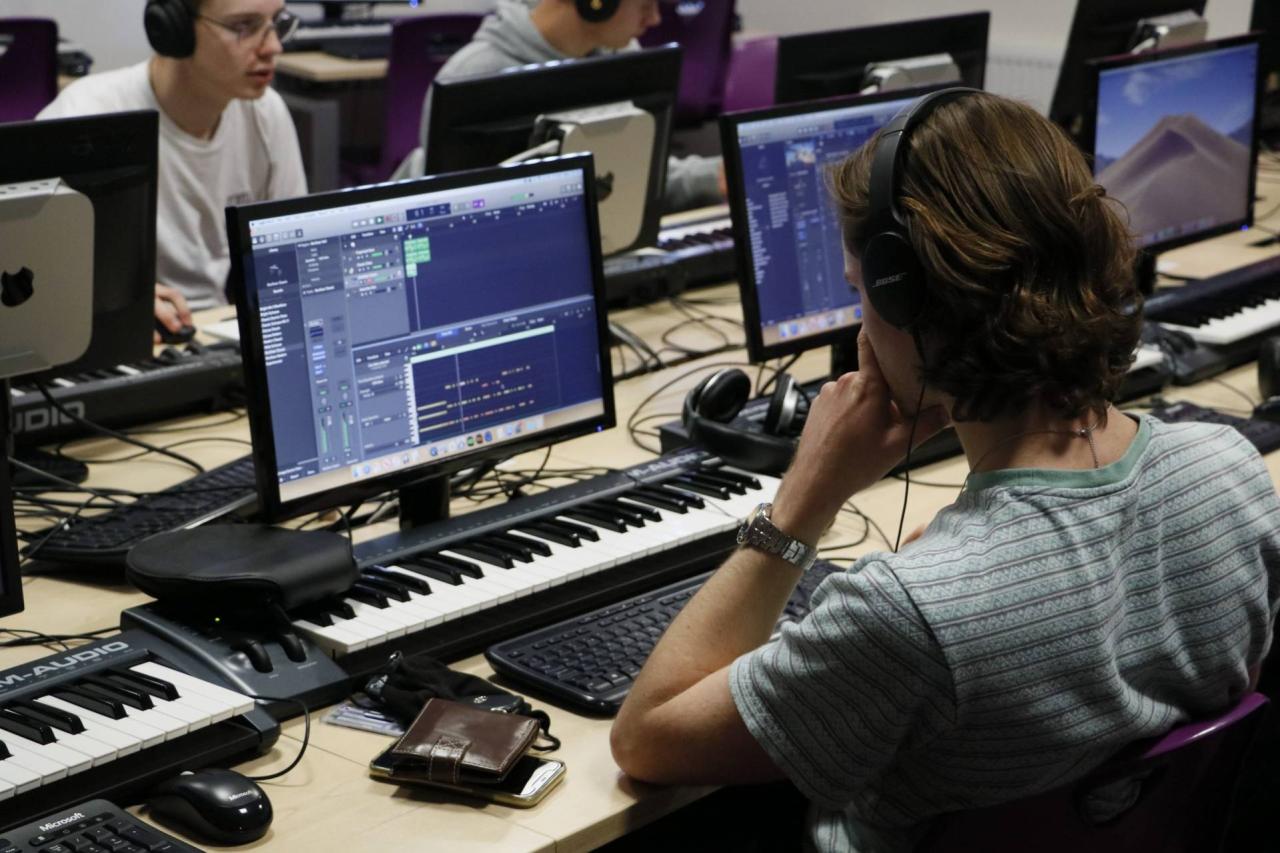
Music technology courses are more than just technical training; they are a gateway to creative expression, professional development, and a deeper understanding of the music industry. As technology continues to evolve, these courses empower you to embrace the future of music, fostering innovation and pushing the boundaries of what’s possible in the world of sound.
Music technology courses can equip you with the skills to navigate the ever-evolving landscape of music production and distribution. Understanding the competitive landscape within the industry is crucial, and you might be surprised to learn that companies like Concur Technologies, known for their expense management solutions, have competitors like those listed here.
Learning about these competitors can provide valuable insights into the business strategies and innovations shaping the music technology sector.
